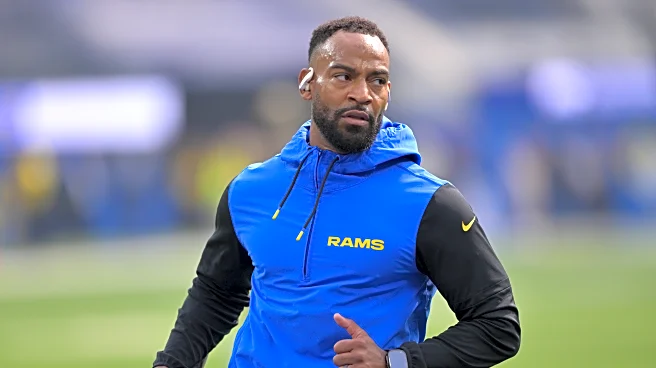What is the story about?
What's Happening?
Spotify has announced a significant leadership transition set to take effect on January 1, 2026. Founder and Chief Executive Officer Daniel Ek will assume the role of Executive Chairman. Gustav Söderström, currently co-President and Chief Product and Technology Officer, and Alex Norström, co-President and Chief Business Officer, will become co-Chief Executive Officers. This change formalizes the operational structure that has been in place since 2023, with the co-presidents leading strategic development and operational execution. Ek's new role will focus on capital allocation and long-term strategic planning, while maintaining close engagement with the Board and co-CEOs.
Why It's Important?
This leadership transition is crucial for Spotify as it continues to innovate and scale in the competitive audio streaming industry. With over 700 million users globally, the company is positioned to further expand its influence under the guidance of experienced leaders. The appointment of Söderström and Norström as co-CEOs ensures continuity in strategic direction, leveraging their extensive experience within the company. Ek's continued involvement as Executive Chairman provides strategic stewardship and mentorship, which is vital for maintaining Spotify's industry leadership and fostering innovation.
What's Next?
The leadership changes will be effective from January 1, 2026. Spotify plans to host a live question and answer session on September 30, 2025, to discuss the transition. This session will provide stakeholders with insights into the future direction of the company and address any concerns regarding the leadership shift. The co-CEOs are expected to focus on enhancing user experience and expanding Spotify's market presence, while Ek will concentrate on long-term strategic initiatives.
Beyond the Headlines
The transition reflects a broader trend in corporate governance where founders take on roles that focus on strategic oversight rather than day-to-day operations. This approach can lead to more agile decision-making and innovation, as operational leaders are empowered to execute strategies effectively. The change also highlights the importance of leadership continuity in maintaining corporate culture and driving sustained growth.
















